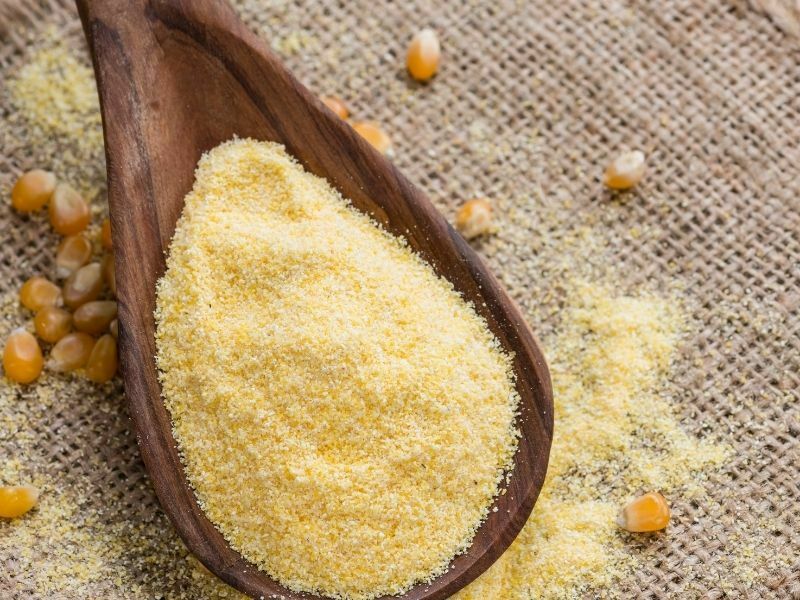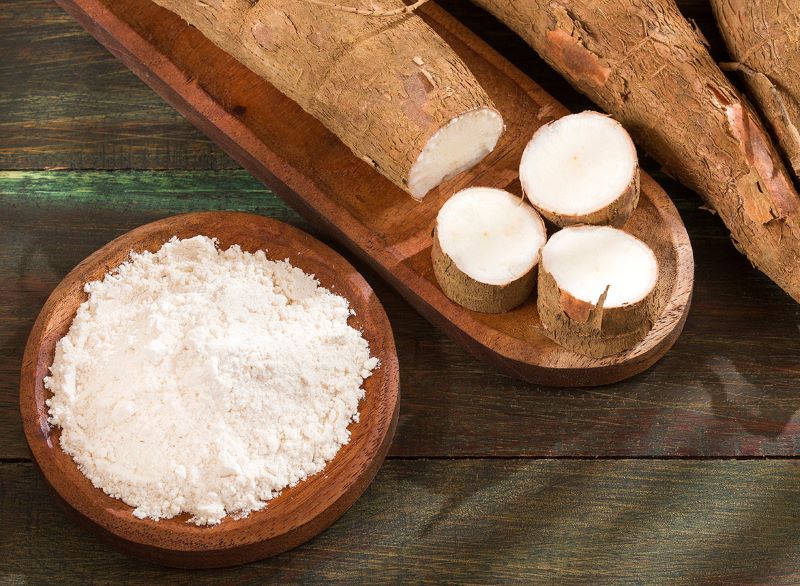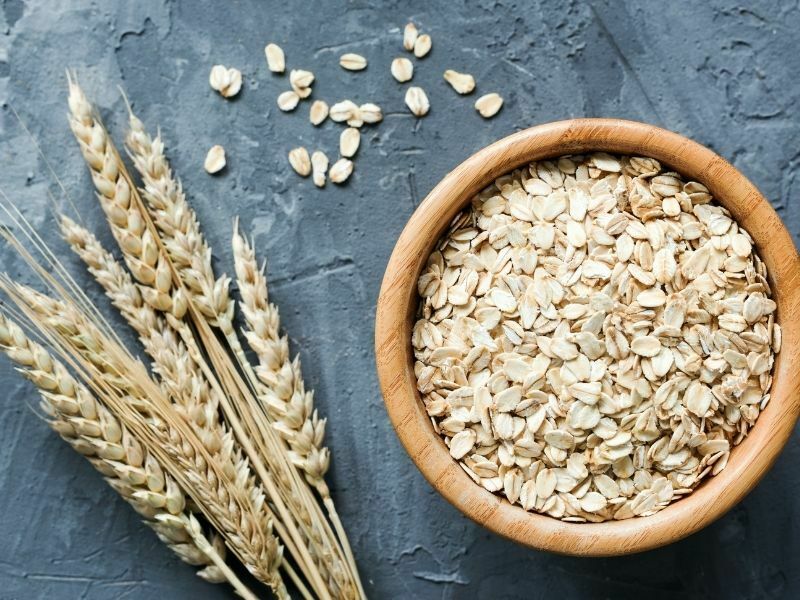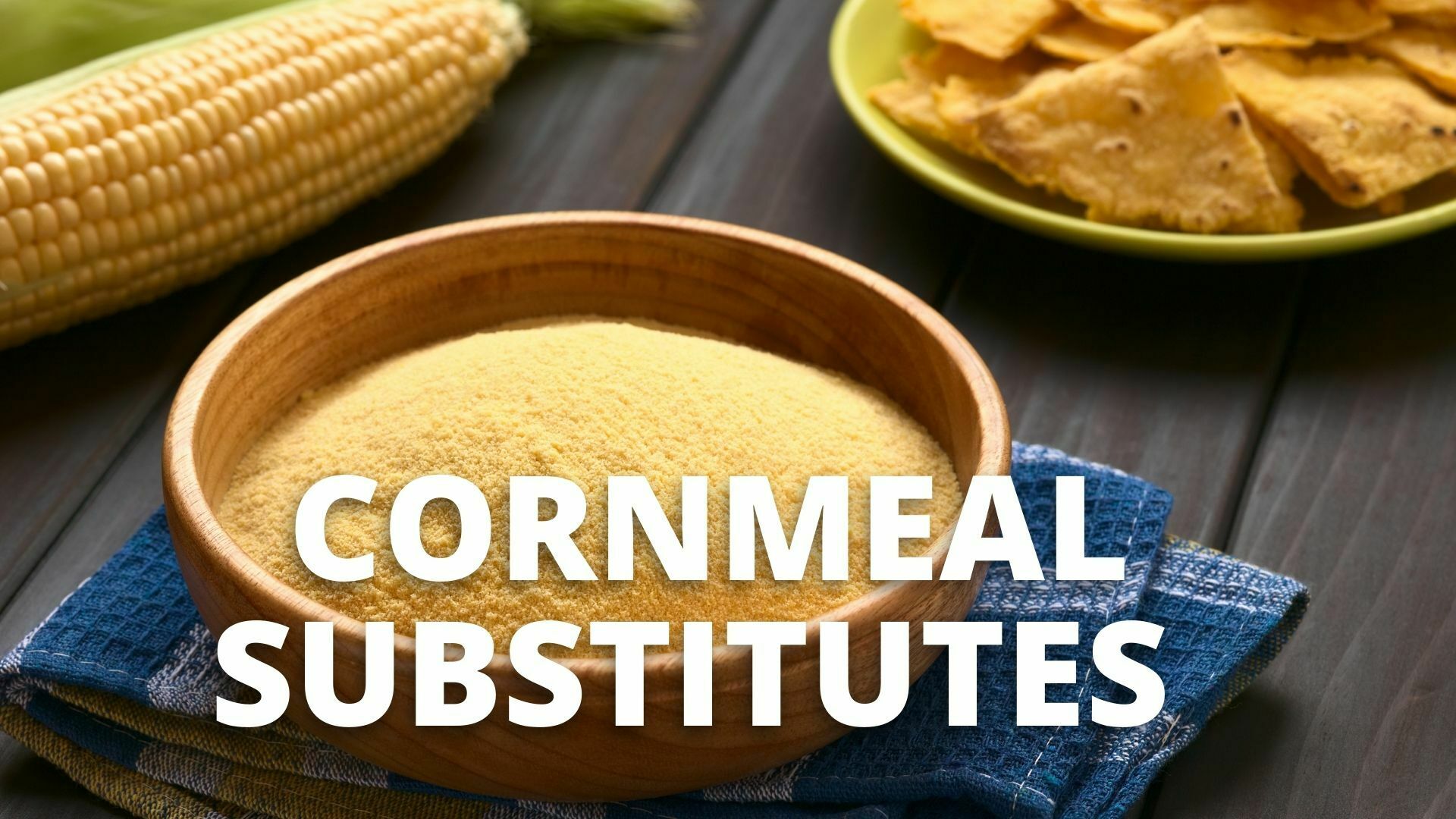Cornmeal is a staple in many recipes, and it’s one of the most versatile ingredients you can use. It’s also a great way to add a whole lot of fiber to your diet!
However, sometimes cornmeal is just not available. If you’re in a pinch for time and need to avoid running out of the store, there are some easy cornmeal substitutes you can use instead.
WHAT IS CORNMEAL?
Cornmeal is a finely ground meal of corn. It’s made from dried whole grains of maize that have been husked and ground into a powdery meal.
It’s often used to make polenta, a popular Italian dish that consists of cornmeal cooked with water or stock then served molded in a pan and cut into bite-size pieces (similar to grits).
In the United States, cornmeal is usually yellow in color. In other parts of the world, it can also be white or blue-gray depending on whether it’s stone ground or not.
Health Benefits of Cornmeal
Cornmeal offers many health benefits as well as being an excellent source of fiber and iron. It also provides vitamins B6 and niacin (vitamin B3) and the antioxidant manganese.
The health benefits of cornmeal are well-researched and have been shown to be true for the general population.
Cornmeal is also a good source of calcium, magnesium, and phosphorus, important minerals for building bones and teeth.
Diets high in corn are also typically rich in dietary fiber, which can help lower cholesterol levels by helping to control blood sugar levels.
17 Best Cornmeal Substitutes
There are many different things you can substitute for cornmeal in your cooking. It is a versatile ingredient that works well in many dishes and can be used to add texture, flavor, and nutrition. Cornmeal is made from dried corn that has been ground into a fine powder. The most common types of cornmeal include yellow, white, and blue. Blue cornmeal is made from a type of maize that has a purple color when ripe. There are several types of substitutes for cornmeal available on the market today including:
1. Wheat Flour
Wheat flour is another popular substitute for cornmeal because it can be used to make bread, muffins, and cookies. You should avoid using whole wheat flour as it may produce a gritty texture when baked because the bran particles will not have time to soften during cooking processes like baking or frying.
2. White Rice Flour
White rice flour has been refined so that it contains no oil or germ which makes it easier to digest than regular brown rice (2). One drawback with using white rice flour is that it tends to give foods an off-putting flavor when eaten alone without any spices added to them.
3. Sweet Potato Flour
Sweet potato flour has a slightly sweeter flavor than regular potato flour and works great in baked goods like cookies and cakes where you’d normally use wheat flour instead! It also adds moisture to baked goods like muffins and bread since it absorbs moisture more readily than other flours do (such as white flours).
4. Potato Starch
Potato starch is a healthy and nutritious alternative to cornmeal that you can use to add somebody and texture. It is great for bread, waffles, and flatbreads. Potato starch does not harden when it is mixed with water, making it easier to mix with other ingredients so you can form gluten-free bread that doesn’t feel doughy or heavy.
5. Potato Flour
Many brands of potato flour are available on the market today as a healthier substitute for white flour. It is also a healthier alternative to cornmeal since it is low in fat, high in fiber, and packed with vitamins and minerals.
6. Cassava Flour

Cassava flour can be a good substitute for cornmeal as it is an incredibly versatile ingredient that you can use to make delicious meals that are free of gluten. Cassava flour works best when you are making a starchy batter like when you are making gravy, or when you want to thicken soups and stews.
7. Malt Flour
Malt flour is made from roasted malted barley which gives the flour a darker color and a more pronounced flavor than regular wheat flour.
8. Soy Flour
Soy flour is made from soybeans and is also a healthy alternative to cornmeal. You can use it by itself as breading or mixing it into your recipes. Soy flour does not rise as wheat flour does, so you would need to include baking powder in your baking recipe to achieve the same results.
9. Tapioca flour
This gluten-free flour is made from dried cassava root (also called yuca). It has a neutral taste that goes well with savory foods like meatloaf or meatballs.
10. Cornstarch
Cornstarch is made from ground corn and can be used as a substitute in almost any recipe that calls for cornmeal. It works best when mixed with other flours in baking recipes because it lacks flavor and can be gritty when used alone in savory dishes like chili or breading meatballs. However, its ability to absorb moisture makes it perfect for thickening sauces and gravies!
11. Almond meal
Almond meal is made from raw almonds that have been ground into a fine powder. It has a light, nutty flavor and works well as an alternative to cornmeal in many recipes.
12. Ground Oats
Ground oats are known as oat flour or oat groats, but they are not the same as whole oats that you may eat for breakfast. Ground oats have been finely ground into a powder, which can be used in baked goods instead of wheat flour. Oat flour has a milder taste than wheat flour and can give baked goods a chewy texture; however, it is lower in protein than all-purpose wheat flour.
13. Polenta
Polenta is a popular food in the United States and is known for its versatility. It can be used in a variety of recipes, from a side dish to the main course. Unlike cornmeal, polenta is made from ground corn that has been boiled in water and then baked in an oven until dry and crumbly.
14. Hominy Grits
Hominy grits are another type of cornmeal that can be used as a substitute for cornmeal. Grits have a milder taste than cornmeal because they have already been processed, which means they don’t need to be cooked with water before being used.
15. Semolina
SEMOLINA is made from durum wheat. It is considered a refined grain, although the milling process does not remove nutrients. It has a creamy texture and light flavor that makes it well-suited to use in desserts and bread.
16. Tortilla Chips
If you are a corn chip lover, you may be surprised to find out that many brands of tortilla chips contain cornmeal. The ingredient list will usually indicate the presence of corn in some form, but not necessarily that it is a substitute for cornmeal. If you don’t want to use cornmeal, try using masa harina instead. Masa harina is made from dried hominy corn, which is a type of corn that has been treated with lime and nixtamalized (processed with an alkaline solution). This process makes the protein in the grain more available to human digestion, which means that it’s easier for your body to digest than regular unprocessed corn.
17. Masa harina
Masa harina is made from dried corn kernels that have been cooked in water and then nixtamalized. The process releases the niacin and amino acids (which are essential for your body) and increases the availability of B vitamins and vitamin C. Nixtamalization also removes phytates (which inhibit nutrient absorption). It’s used to make tortillas, tamales, pupusas, calzones and more. If you need to make homemade tortillas or other Mexican dishes, look for masa harina in the ethnic aisle of your grocery store (or online).
Conclusion
In conclusion, cornmeal is an important ingredient in the baking industry. Cornmeal is mainly used as a substitute for wheat flour because it can be used in a wide variety of foods. However, there are some substitutes that can be used instead of cornmeal when it comes to putting together different recipes. These cornmeal substitutes include rice flour, almond flour, tapioca starch, and even potato starch. Each one of these ingredients has its own unique characteristics that make them suitable for different types of recipes.

